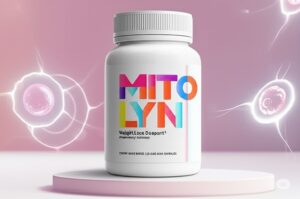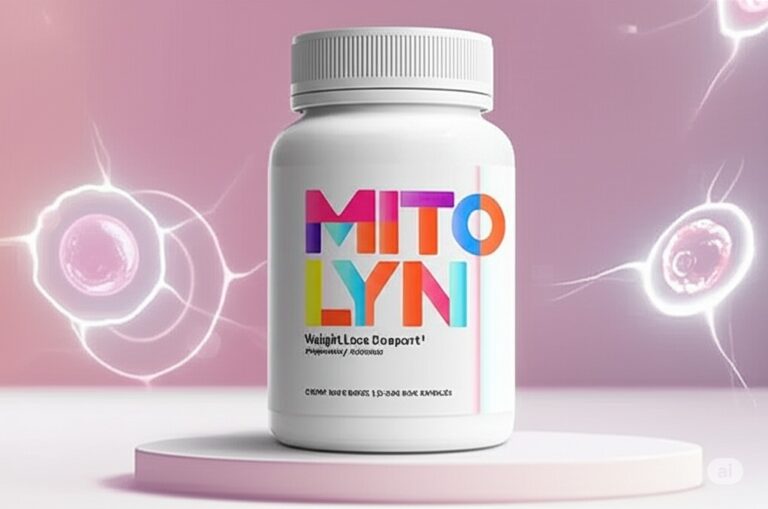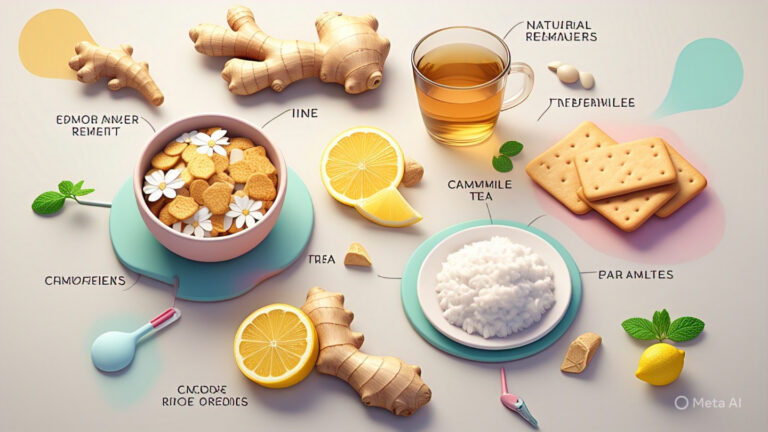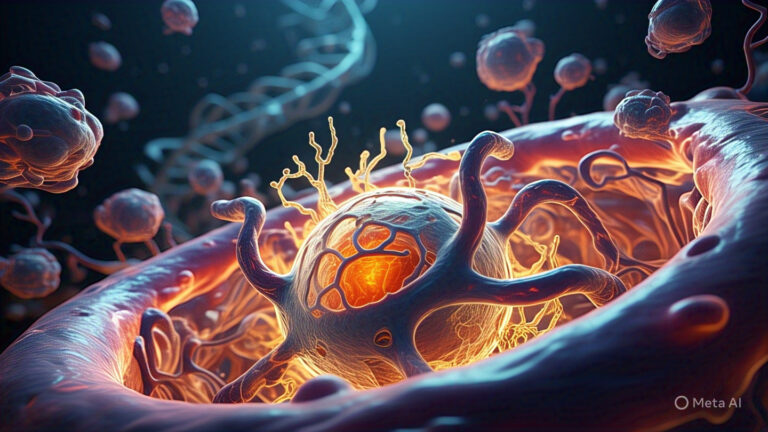Estimated reading time: 8 minutes
Introduction: Finding Relief from Heartburn with Natural Solutions
Heartburn can turn a pleasant meal into a painful ordeal, leaving you desperate for comfort. That burning sensation in your chest, often creeping up after a heavy dinner, is something many of us know too well. Medically, it’s a symptom of acid reflux, where stomach acid irritates the esophagus, sparked by certain foods or habits.
You’re not alone in this struggle—millions deal with heartburn regularly, with studies from the National Institutes of Health showing nearly 20% of Americans experiencing it weekly. This guide from WikiHomeRemedies is here to help with safe, natural solutions for both quick relief and lasting prevention. We’ll walk through what causes that burn, simple remedies you can try at home, lifestyle shifts to keep it at bay, and when to seek help.
Our promise is straightforward: every suggestion rests on trustworthy, science-backed insights from sources like the NIH and WebMD. Let’s ease that discomfort together and explore nature’s healing touch.
Key Takeaways
- Understand heartburn triggers to make tailored changes and avoid discomfort.
- Natural home remedies—like ginger, baking soda, and bananas—offer quick, science-backed relief.
- Traditional herbal approaches such as chamomile and slippery elm provide holistic support for ongoing symptoms.
- Adopting smart lifestyle and dietary habits helps prevent heartburn long term.
- Recognize when medical attention is necessary and separate myths from facts for lasting health.
Table of Contents
- Understanding Heartburn: What Causes the Burn?
- Top Evidence-Based Home Remedies for Quick Heartburn Relief
- Herbal and Traditional Remedies for Heartburn Relief
- Lifestyle and Dietary Changes for Long-Term Heartburn Prevention
- When Home Remedies Aren’t Enough: Spotting Serious Symptoms
- Busting Myths: Separating Fact from Fiction in Heartburn Remedies
- Supplemental Content: FAQs for Deeper Insights on Heartburn Remedies
Understanding Heartburn: What Causes the Burn?
Imagine eating a spicy taco, then feeling a fiery sting rise in your chest. That’s heartburn, born from acid reflux—when stomach acid slips past a weakened lower esophageal sphincter into your esophagus. This delicate lining isn’t built for acid, so irritation flares up, mimicking a burn.
Several everyday factors can loosen that sphincter or boost acid production. Overeating stretches your stomach, pushing contents upward. Stress can tighten your system, worsening the flow. Even pregnancy, with its added pressure on the abdomen, often plays a role. Knowing what sparks your symptoms is the first step to managing them.
Research from trusted sources like the Mayo Clinic points to a range of triggers worth noting. Let’s break these down further so you can spot what might be setting off your discomfort.
Common Triggers of Heartburn You Should Know
- Specific Foods: Spicy dishes, citrus fruits, chocolate, and fatty meals often irritate the esophagus or relax the sphincter.
- Eating Patterns: Large meals or lying down right after eating push acid back up.
- Lifestyle Habits: Smoking weakens the esophageal barrier, while stress amplifies acid production.
- Health Factors: Pregnancy and excess weight add pressure, increasing reflux risk.
Start noting when symptoms hit—after a late coffee or a heavy dinner, perhaps. This simple habit, supported by advice from Harvard Health, can uncover your personal triggers and guide smarter choices ahead.
Top Evidence-Based Home Remedies for Quick Heartburn Relief
When heartburn strikes, you want something fast and within reach. This section offers natural solutions using items likely already in your kitchen or a quick trip away. Each remedy comes with clear steps and grounding in science from reputable sources like the NIH, ensuring you feel confident trying them out.
These options aim for immediate ease, calming that burn so you can get back to your day. From neutralizing acid to soothing irritation, let’s explore what works and how to use it safely.
Baking Soda Solution: A Fast-Acting Neutralizer
Baking soda, a common pantry staple, can quickly tame stomach acid by acting as a neutralizer. It raises the pH, cutting down irritation in moments. The Mayo Clinic notes its effectiveness but urges caution due to high sodium content.
Here’s how to use it safely:
- Mix half a teaspoon of baking soda in 4 ounces (about 120 ml) of water.
- Stir until fully dissolved, then drink slowly.
- Avoid using more than once a day—overuse risks side effects like swelling.
This is a short-term fix, best for occasional flare-ups. Reserve it for emergencies rather than daily reliance.
Ginger Tea or Chews: Soothing Inflammation Naturally
Ginger has long been a friend to digestion, calming inflammation that fuels heartburn. Studies from the NIH highlight its ability to settle the stomach and reduce acid backup. Whether fresh or as a chew, it’s a gentle way to find peace.
Try this simple approach:
- Slice a thumb-sized piece of fresh ginger and steep in hot water for 10 minutes.
- Sip as tea, or chew small bits if you prefer a stronger kick.
- Look for organic ginger at local markets for the purest effect.
It’s a warm, comforting option, especially after a triggering meal.
Aloe Vera Juice: Calming Esophageal Irritation
Aloe vera isn’t just for sunburns—it can cool the esophagus too. Its gel-like nature forms a protective layer, easing acid’s sting. Integrative health experts often suggest it for mild reflux symptoms.
Use it with care like this:
- Choose pure, food-grade aloe vera juice—1 to 2 ounces (30–60 ml) before meals.
- Don’t overdo it; excess can act as a laxative.
- Check for additives in store-bought options to avoid extra irritation.
A small glass can bring a wave of calm when the burn starts creeping up.
Apple Cider Vinegar (Diluted): A Controversial but Popular Fix
Some swear by apple cider vinegar to balance stomach acid, though science remains undecided. The idea is it might aid digestion for some, but WebMD warns it’s not a universal cure. If you try it, safety is key.
Follow these steps:
- Mix 1 to 2 teaspoons in a glass of water (8 oz or 240 ml).
- Sip before a meal to test its effect on your system.
- Never take it undiluted—it can harm enamel or worsen irritation.
This remedy divides opinions, so listen to your body and proceed with caution.
Chewing Gum: Stimulating Saliva for Acid Control
Chewing gum might sound surprising, but it boosts saliva, which naturally counters acid. Saliva washes reflux back down, lessening esophageal stress. Small studies in dental health back this subtle trick.
Here’s how to make it work:
- Pick sugar-free gum to protect your teeth.
- Chew for 30 minutes after eating to maximized saliva flow.
- Keep a pack handy for on-the-go relief.
It’s a low-effort way to dial down discomfort after a meal.
Bananas or Apples: Nature’s Antacids
Ripe bananas and apples offer a mild buffer against acid thanks to pectin and natural alkalinity. USDA data points to their digestive benefits, making them a smart snack for subtle heartburn. They’re easy to grab and gentle on the stomach.
Try this for quick relief:
- Eat a ripe banana or apple when symptoms start.
- Pair with a glass of water to aid digestion.
- Keep these fruits stocked for a handy fix.
Nature provides a simple shield with these everyday picks.
Herbal and Traditional Remedies for Heartburn Relief
For those drawn to time-tested solutions, herbs offer a deeper connection to natural healing. Used across generations, these remedies blend tradition with modern understanding. Backed by integrative health insights, they provide another layer of comfort while prioritizing safety.
Let’s look at a few herbal allies that can ease heartburn with a nod to their historical roots.
Chamomile Tea: Calming Your Stomach and Mind
Chamomile whispers calm to both your stomach and nerves, a dual benefit for heartburn tied to stress. Herbal medicine sources note its ability to relax digestive muscles. A warm cup can feel like a gentle hug.
Prepare it easily:
- Steep 1 to 2 teaspoons of dried chamomile flowers in a cup of hot water.
- Let it sit for 5 minutes, then sip slowly.
- Drink in the evening to unwind and soothe.
This remedy pairs relief with a moment of peace.
Licorice Root (DGL): Protecting Your Esophageal Lining
Deglycyrrhizinated licorice, or DGL, helps shield the esophagus by boosting mucus production. Research on PubMed shows promise for managing reflux symptoms. It’s a lesser-known but potent option.
Use it with guidance:
- Opt for DGL chewable tablets or tea, following package dosing.
- Chew 20 minutes before meals for best results.
- Avoid regular licorice—excess can raise blood pressure.
A protective coat from nature can make a real difference.
Slippery Elm Bark: A Soothing Esophageal Coat
Slippery elm lives up to its name, creating a slick barrier against acid irritation. Traditionally prized in herbal care, it’s endorsed by integrative experts for digestive woes. It’s like a soft blanket for your esophagus.
Try this method:
- Mix 1 teaspoon of powdered bark with warm water as a tea.
- Drink slowly, or look for lozenges at health stores.
- Stick to small amounts—overuse can interfere with nutrient absorption.
This old remedy brings quiet relief when irritation lingers.
Lifestyle and Dietary Changes for Long-Term Heartburn Prevention
Quick fixes help in the moment, but lasting comfort comes from daily habits. Adjusting how you eat, sleep, and live can cut heartburn’s frequency dramatically. Backed by advice from the Cleveland Clinic, these shifts aim to stop the burn before it starts.
Think of this as building a foundation for ease. Small changes add up, and we’ll guide you through practical steps to make them stick.
Eating Habits: Smaller Meals, Smarter Choices
Overloading your stomach pressures the esophageal sphincter, inviting reflux. Smaller, thoughtful meals ease that strain. Harvard Health suggests spacing out food to keep acid in check.
Consider these tips:
- Break meals into five smaller portions across the day.
- Skip triggers like spicy or fried dishes—opt for grilled or steamed instead.
- Chew slowly to aid digestion and reduce air swallowed.
A sample day might include oatmeal for breakfast, a light turkey sandwich at lunch, and baked fish for dinner. Steady portions dodge the burn.
Sleep and Posture: Keeping Acid in Check
Lying flat too soon after eating lets acid creep up, defying gravity. Raising your head during sleep redirects that flow. Simple tweaks can transform your nights.
Make rest reflux-free:
- Prop your bed’s head 6 to 8 inches (15–20 cm) with a wedge or blocks.
- Wait 2 to 3 hours after meals before lying down.
- Sleep on your left side to lessen stomach pressure.
Gravity becomes your ally with just a little elevation.
Healthy Habits: Weight, Smoking, and Alcohol Control
Carrying extra weight presses on your stomach, nudging acid upward. Smoking and alcohol also relax the sphincter, worsening matters. WHO data ties these habits to reflux spikes.
Ease into change gently:
- Aim for gradual weight reduction through balanced meals and walks.
- Cut back on smoking—support groups can help lighten the load.
- Limit alcohol to one drink a day, if any, to test its impact.
Small steps in lifestyle pave the way for quieter digestion.
When Home Remedies Aren’t Enough: Spotting Serious Symptoms
Sometimes heartburn hints at something more than a passing nuisance. Persistent or intense symptoms could signal chronic reflux or complications like esophagitis. The Mayo Clinic urges attention to warning signs, and we’re here to help you notice them.
Don’t brush off ongoing discomfort—your health deserves care. Watch for these red flags that mean it’s time to see a doctor:
- Symptoms striking more than twice a week despite remedies.
- Chest pain mimicking a heart issue—always check this urgently.
- Unexplained weight loss or trouble swallowing alongside the burn.
A quick consult can rule out deeper concerns and bring tailored help. Trust your instincts if something feels off.
Busting Myths: Separating Fact from Fiction in Heartburn Remedies
Misinformation swirls around heartburn relief, often leading to risky tries. Let’s clear the fog with grounded facts, drawing from sources like the NIH. Sorting truth from tale empowers smarter choices.
We’ll tackle a few common beliefs that might steer you wrong. Clarity brings confidence in managing your symptoms.
Myth: Milk Cures Heartburn Permanently
A glass of milk might dull the burn briefly with its cool touch. Yet, digestive health experts explain fat content can spark more acid later. It’s a Band-Aid, not a fix, often rebounding with discomfort.
Rely on it only for a fleeting pause, if at all. Sustainable relief lies elsewhere in dietary balance.
Myth: Heartburn Is Always Harmless
An occasional flare after pizza might seem trivial, but chronic cases aren’t. Ignoring frequent heartburn risks issues like Barrett’s esophagus, a precancerous shift. Medical consensus warns against dismissing patterns.
Track how often it hits—if it’s regular, don’t delay a checkup. Early steps prevent bigger hurdles.
Myth: Apple Cider Vinegar Works for Everyone
While some tout apple cider vinegar as a cure-all, evidence varies widely. Studies show it may help a few with digestion but irritates others, even eroding enamel. WebMD notes its unpredictability across users.
Test it cautiously, if at all, and know it’s no magic potion. Personal response trumps hype every time.
Supplemental Content: FAQs for Deeper Insights on Heartburn Remedies
Can heartburn be completely prevented with diet?
Not entirely, but diet plays a huge role in curbing it. Avoiding triggers like spicy foods or late meals slashes frequency. Pair this with smaller portions, and many find significant relief, though stress or other factors might still sneak in.
What exactly is acid reflux compared to heartburn?
Acid reflux is the process—stomach acid flowing back into the esophagus. Heartburn is the symptom, that burning pain from the irritation. Think of reflux as the cause, heartburn as the effect you feel.
Which remedies are safest for pregnant women?
Pregnancy ramps up reflux risk, so gentleness matters. Ginger tea and small, frequent meals often work well, while baking soda should be skipped due to sodium. Always check with a doctor for personal fit.
How does stress trigger heartburn compared to food?
Stress tightens your body, spurring more acid or sphincter looseness, much like heavy meals do. Food directly overloads the stomach, while stress acts indirectly via nerves. Both disrupt balance, often needing combined calm and diet tweaks.
Source: Home Remedies for Sore Throat
Source: Home Remedies for Inflamed Throat
Source: Home Remedies for Ear Infection
Source: Home Remedies for Acid Indigestion










